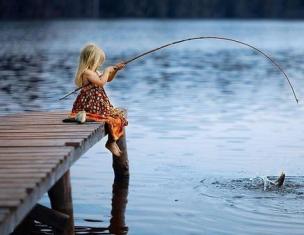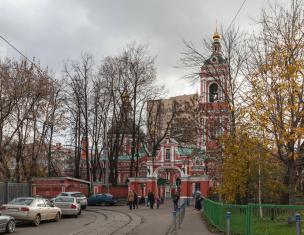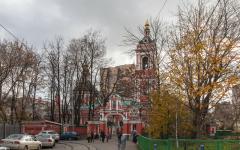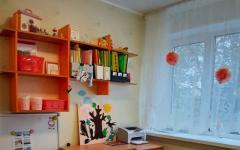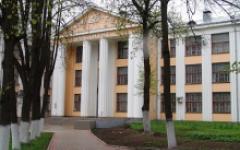Bella (Isabella) Akhatovna Akhmadulina was born on April 10, 1937 in Moscow. Her father - Akhat Valeevich Akhmadulin(1902-1979), Tatar by nationality, Komsomol and party worker. Mother Nadezhda Makarovna Lazareva worked as a translator in the state security agencies and was the niece of a revolutionary on her mother’s side Alexandra Stopani.
Bella Akhmadulina. Photo: RIA Novosti / Valery Melnikov
Her maternal grandmother, Nadezhda Mitrofanovna, had a great influence on Akhmadulina. It was she who taught Bella to read, instilled in her a love of classical literature, reading not only fairy tales, but also works Gogol With Pushkin.
During the war, Bella's father went to the front. The girl was sent to Kazan, where her second paternal grandmother lived. Immediately after the end of the war, Bella returned to the capital and went to school. She studied reluctantly, often skipped classes and gave preference only to literature classes. Akhmadulina was a very well-read girl for her age and from an early age she wrote without grammatical errors. During her school years, she began writing poetry.
Creative activity
In 1955, the 18-year-old poetess made her literary debut in the magazine “October”.
In 1957, Akhmadulina’s poetry was criticized in the newspaper “ TVNZ" The poems were considered too mannered and old-fashioned, not in keeping with the spirit of the Soviet era.
In 1960 she graduated from the Literary Institute. She was expelled from the institute for refusing to support the persecution of Boris Pasternak (officially for failing an exam in Marxism-Leninism), then was reinstated.
In 1959, at the age of 22, Akhmadulina wrote one of her most famous poems, “On My Street Which Year...”. In 1975 composer Mikael Tariverdiev set these poems to music, and performed the romance Alla Pugacheva featured in the film E. Ryazanova"Irony of Fate or Enjoy Your Bath!".
The poetess's talent was immediately noted by recognized masters, including Evgeny Yevtushenko, Robert Rozhdestvensky, Andrei Voznesensky. Together with them, Bella Akhatovna Akhmadulina began appearing at creative evenings.
In 1964, she starred as a journalist in the film Vasily Shukshina“There lives such a guy.” The film received the Golden Lion at the Venice Film Festival. In 1970, Akhmadulina appeared on the screens in the film “Sport, Sports, Sports.”
The first collection of poems, “String,” appeared in 1962. This was followed by the poetry collections “Chills” (1968), “Music Lessons” (1970), “Poems” (1975), “Blizzard” (1977), “Candle” (1977), “Mystery” (1983), “Garden” (USSR State Prize, 1989).
In the 1970s, the poetess visited Georgia, and since then this land has occupied a prominent place in her work. Akhmadulina translated N. Baratashvili, G. Tabidze, I. Abashidze and other Georgian authors.
Akhmadulina is the author of many talented essays about outstanding creative personalities. She has written works about Vladimir Nabokov, Anna Akhmatova, Marina Tsvetaeva, Veniamin Erofeev, Vladimir Vysotsky and many other talented people, many of whom she knew personally.
In 1979, Akhmadulina participated in the creation of the uncensored literary almanac Metropol. Akhmadulina has repeatedly spoken out in support of Soviet dissidents - Andrey Sakharov, Lev Kopelev, Georgiy Vladimov,Vladimir Voinovich. Her statements in their defense were published in the New York Times and repeatedly broadcast on Radio Liberty and Voice of America.
In 1993, Akhmadulina signed the “Letter of Forty-Two,” the authors of which demanded that the president ban “all types of communist and nationalist parties.”
In 2001, she signed a letter in defense of the NTV channel.
IN last years Bella Akhmadulina was seriously ill, she could see practically nothing and moved by touch.
Bella Akhmadulina died on the evening of November 29, 2010 in an ambulance, at the age of 74. According to the poetess's husband Boris Messerer, death was due to a cardiovascular crisis.

Poet Bella Akhmadulina with her husband, artist Boris Messerer. Photo: RIA Novosti / Ekaterina Chesnokova
Farewell to Bella Akhmadulina took place on December 3, 2010 at the Central House of Writers in Moscow. On the same day she was buried at the Novodevichy cemetery.
Bibliography
1962 - String"
. 1968 - Chills"
. 1969 — “Music Lessons”
. 1975 — “Poems”
. 1977 — “Candle”
. 1977, 1979 - “Dreams about Georgia”
. 1977 — “Blizzard”
. 1980 — Almanac “Metropol”
. 1983 — “The Secret”
. 1987 — “Garden”
. 1988 — “Poems”
. 1988 — “Favorites”
. 1988 — “Poems”
. 19991 — “Coast”
. 1994 — “Casket and Key”
. 1995 — “The Sound of Silence”
. 1995 — “Ridge of Stones”
. 1995 - “My Very Poems”
. 1995 — “Sound indicating”
. 1996 — “Once Upon a Time in December”
. 1997 — “Contemplation of a glass ball”
. 1997 — “Collected works in three volumes”
. 1997 — “A Moment of Being”
. 1996-1999 - “Unexpectation”
. 1999 — “Near the Christmas tree”
. 2000 - “An ancient style attracts me”
. 2000 — “My friends have beautiful features”
. 2000 - “Poems. Essay"
. 2000 — “Mirror. XX century"
. 2008 — “Chilled Hyacinth”
. 2009 — “Button in a Chinese Cup”
. 2009 — “Favorites”
. 2010 — “Not a word about love”
. 2010 — “Failure”

Georgian writer Tengiz Buachidze, poetess Bella (Isabella) Akhmadulina and literary critic Gia Margvelashvili. Photo: RIA Novosti / Rukhkyan
Filmography
Acting works:
1964 - There lives such a guy
. 1970 - Sports, sports, sports

Leonid Kuravlev (left) and Bella Akhmadulina (right) in Vasily Shukshin’s film “There Lives Such a Guy.” Photo: RIA Novosti / Rukhkyan
Screenwriter:
1965 - Chistye Prudy
. 1968 - Stewardess
Use of verses:
1964 - Zastava Ilyich
. 1973 - My friends... (film almanac)
. 1975 - The Irony of Fate, or Enjoy Your Bath! — “On my street”, performed by Nadya (Alla Pugacheva)
. 1976 - Non-transferable key - the author herself reads poetry
. 1978 - Office novel - “Chills” (“Oh, my shy hero”), read by Svetlana Nemolyaeva
. 1978 - Old-fashioned comedy
. 1984 - I came and I say - “Come on stage” (“I came and I say”), performed by Alla Pugacheva
. 1984 - Cruel Romance - “And in the end I will say”, “Romance of Romance”, “Snow Maiden”, performed by Valentina Ponomareva
. 1997 - “Waiting Room” - “Exhausted to the bottom with inquisitive eyes,” reads the heroine of Inna Alekseeva.

Poet Bella Akhmadulina. 1967 Photo: RIA Novosti / Minev
Awards and prizes
1984 - Order of Friendship of Peoples
. 1989 - Laureate of the USSR State Prize
. 1993 - Laureate of the Znamya Foundation Prize
. 1994 - Winner of “Nosside” (Italy)
. 1994 - Winner of the Triumph Prize
. 1994 - Laureate of the Pushkin Prize of the A. Tepfer Foundation
. 1997 - Order of Merit for the Fatherland III degree— for services to the state and outstanding contribution to the development of domestic literature
. 1999 - Presidential Award Russian Federation in literature and art
. 200 0g. — Laureate of the magazine “Friendship of Peoples”
. 2004 - Bulat Okudzhava Prize 2003
. 2005 - State Prize of the Russian Federation in the field of literature and art 2004 - for the continuation and development of the high traditions of Russian poetry
. 2007 - Order of Merit for the Fatherland, II degree - for outstanding contribution to the development of Russian literature and long-term creative activity
. Honorary Member of the Russian Academy of Arts

October 9, 2007. Russian President Vladimir Putin awarded poetess Bella Akhmadulina the Order of Merit for the Fatherland, II degree. Photo: RIA Novosti / Vladimir Rodionov
Personal life
From 1955 to 1958 Akhmadulina was his wife Evgenia Yevtushenko. There were no children in this marriage.
From 1959 to November 1, 1968 - wife Yuri Nagibin. In the year of separation, Akhmadulina took a girl from an orphanage Anya. The adopted Anna received her patronymic from Yuri Nagibin, although she was not his daughter.
Bella Akhatovna’s marriage to the son of a famous writer was very short and civil. Kaisyn Kulieva — Eldar. In 1973, their daughter was born Elizabeth.
In 1974, she married for the fourth and last time to a theater artist. Boris Messerer, leaving the children with their mother and housekeeper.
The first daughter, Anna, graduated from the Printing Institute and designs books as an illustrator. Daughter Elizabeth, like her mother, graduated from the Literary Institute.
In recent years, Bella Akhmadulina lived in Peredelkino with her husband.
Russian poet, writer, translator, one of the largest Russian lyric poets of the second half of the 20th century
Bella Akhmadulina
short biography
Bella (Isabel) Akhatovna Akhmadulina(Tat. Bella Әхәт kyzy Әхмәdullina, Bella Əxət qızı Əxmədullina; April 10, 1937, Moscow - November 29, 2010, Peredelkino) - Russian poet, writer, translator, one of the largest Russian lyrical poets of the second half of the 20th century. Member of the Union of Russian Writers, the executive committee of the Russian PEN Center, the Society of Friends of the Museum fine arts named after A.S. Pushkin. Honorary member of the American Academy of Arts and Letters. Laureate of the State Prize of the Russian Federation and the State Prize of the USSR.
Bella Akhmadulina was born on April 10, 1937 in Moscow. Her father is Akhat Valeevich Akhmadulin (1902-1979), a Tatar by nationality, a Komsomol and party worker, during the Great Patriotic War guard major, deputy for political affairs of the commander of the 31st separate anti-aircraft artillery division, later a major responsible employee of the State Customs Committee of the USSR (head of the personnel department, deputy chairman). Mother Nadezhda Makarovna Lazareva worked as a translator in the state security agencies and was the maternal niece of the revolutionary Alexander Stopani.
Bella began writing poetry during her school years; according to literary critic D. Bykov, she “found her style at the age of fifteen.” P. Antokolsky was the first to note her poetic gift.
In 1957 she was criticized in Komsomolskaya Pravda. She graduated from the Literary Institute in 1960. She was expelled from the institute for refusing to support the persecution of Boris Pasternak (officially for failing an exam in Marxism-Leninism), then she was reinstated.
In 1959, at the age of 22, Akhmadulina wrote one of her most famous poems, “On My Street Which Year...”. In 1975, composer Mikael Tariverdiev set these poems to music, and the romance performed by Alla Pugacheva was heard in E. Ryazanov’s film “The Irony of Fate, or Enjoy Your Bath!”
In 1964, she starred as a journalist in Vasily Shukshin’s film “There Lives Such a Guy.” The film received the Golden Lion at the Venice Film Festival. In 1970, Akhmadulina appeared on the screens in the film “Sport, Sports, Sports.”
The first collection of poems, “String,” appeared in 1962. This was followed by the poetry collections “Chills” (1968), “Music Lessons” (1970), “Poems” (1975), “Blizzard” (1977), “Candle” (1977), “Mystery” (1983), “Garden” (USSR State Prize, 1989). Akhmadulina’s poetry is characterized by intense lyricism, sophistication of forms, and obvious echoes of the poetic tradition of the past.

In the 1970s she visited Georgia, since then this land has occupied a prominent place in her work. Akhmadulina translated N. Baratashvili, G. Tabidze, I. Abashidze and other Georgian authors.
In 1979, Akhmadulina participated in the creation of the uncensored literary almanac Metropol. Akhmadulina has repeatedly spoken out in support of Soviet dissidents - Andrei Sakharov, Lev Kopelev, Georgy Vladimov, Vladimir Voinovich. Her statements in their defense were published in the New York Times and repeatedly broadcast on Radio Liberty and Voice of America.
 The grave of B. A. Akhmadulina at the Novodevichy Cemetery in Moscow
The grave of B. A. Akhmadulina at the Novodevichy Cemetery in Moscow
She participated in many world poetry festivals, including the International Poetry Festival in Kuala Lumpur (1988).
In 1993 she signed the “Letter of Forty-Two”.
In 2001, she signed a letter in defense of the NTV channel.
In recent years, Bella Akhmadulina was seriously ill, saw practically nothing and moved by touch, and wrote almost nothing.
Bella Akhmadulina died at the age of 74 on November 29, 2010 at her dacha in Peredelkino. According to the poetess's husband Boris Messerer, death was due to a cardiovascular crisis. President of the Russian Federation D. A. Medvedev expressed official condolences to the family and friends of the poetess.
Farewell to Bella Akhmadulina took place on December 3, 2010 at the Central House of Writers in Moscow. On the same day she was buried at the Novodevichy cemetery.
Family

From 1957 to 1958, Akhmadulina was the first wife of Yevgeny Yevtushenko.
From 1959 to November 1, 1968 - the fifth wife of Yuri Nagibin. This marriage collapsed, according to Nagibin himself in his published “Diary” and Vasily Aksenov’s fictionalized memoirs “Mysterious Passion,” due to the poetess’s bold sexual experiments. In 1968, divorcing Nagibin, Akhmadulina took in her adopted daughter Anna.
From the son of the Balkar classic Kaisyn Kuliev, Eldar Kuliev (1951-2017), in 1973 Akhmadulina gave birth to a daughter, Elizaveta.
In 1974, she married for the fourth and last time - to theater artist Boris Messerer, leaving the children with her mother and housekeeper.
The first daughter, Anna, graduated from the Printing Institute and designs books as an illustrator. Daughter Elizabeth, like her mother, graduated from the Literary Institute.
In recent years, Bella Akhmadulina lived in Peredelkino with her husband.
Creation
Poetry for Akhmadulina is self-revelation, meeting inner world poet with the world of new (tape recorder, airplane, traffic light) and traditional (candle, friend’s house) objects. For her poetry, everything - even any little thing - can serve as an impulse, inspire a bold fantasy that gives birth to daring images, fantastic, timeless events; everything can become spiritualized, symbolic, like any natural phenomenon (“The Tale of the Rain”, 1964). Akhmadulina expands her vocabulary and syntax, turning to archaic elements of speech, which she interweaves with modern colloquial language. The alienated use of individual words returns their original meaning in context. It is not statics, but dynamics that determine the rhythm of Akhmadulina’s poems. At first, the share of unusual things in Akhmadulina’s poems was very large compared to most Russian poems of that time, but then her poetry became simpler and more epic.
Wolfgang Kazak.
However, for all her refined, eloquent, outdated vocabulary, Akhmadulina was and remains an absolutely modern poet - the late 20th and early 21st centuries. How did she achieve this? There are practically no signs of modern times, there are practically no abbreviations and slang in her poems, there are very few colloquial words, although they are extremely expressive (motley, shame, money, soprut, cemeteries), fashionable Anglicisms are in just a few poems.
And, finally, the main thing: Akhmadulina proved herself to be a true reformer of verse, first of all, of rhyme, and rhyme is, of course, the most important part forms in a syllabic-tonic poem. Akhmadulina has practically no banal rhymes. All rhymes are unexpected, new, non-repetitive, almost never found in other poets.
Evgeniy Stepanov
Literary critic I. Snegovaya, who was present at the Akhmatov evening with the participation of Akhmadulina in 2008, notes her poems dedicated to Repino and Komarovo, written in these places. The feeling of the past time, fascination with the appearance of old dachas and reflections on the fate of their inhabitants form the content of these works. “Her presence at the Akhmatov evening was so appropriate and joyful for the listeners. The Beautiful Lady of modern Russian poetry, she continues the classical tradition with her exquisite appearance and style, and in her poems addressed to Akhmatova, admiration and controversy live, without which there is no continuity.”
Joseph Brodsky called Akhmadulina “the undoubted heir of the Lermontov-Pasternak line in Russian poetry.”
The complete and conscious blurriness of Akhmadulina’s poetry, similar to impressionism in painting, is noted by Dmitry Bykov. Pointing out that, complicated by a labyrinth of associative moves, difficult-to-remember poems nevertheless leave the reader with “a feeling of a whole and beautiful image, selfless, combining dignity with shyness, knowledge of life with helplessness, downtroddenness with victoriousness.” The cross-cutting theme of Akhmadulina’s work, the literary critic points out, was shame, which “accompanied her all her life and was dictated in many ways by the disorderly, too turbulent life that she had to lead.” This dominant theme, Bykov believes, was reflected in “the same lack of creative will, which sometimes forced her to prolong poetry beyond the prescribed limit, enter into unnecessary relationships, and drink with unnecessary people.” According to the biographer, Akhmadulina, with her inherent painful sinfulness and bitter self-condemnation, continues the poetic tradition of Boris Pasternak: both lyric poets, both in life and in poetry, were related by pomposity, pomposity, verbosity, courtesy, shyness; these qualities, surprising those around them in everyday life, were “human traits among inhumanity, a breath of warmth among the icy world.”
On February 9, 2013, speaking at the first Congress of Parents, Russian President V.V. Putin called for the inclusion of Akhmadulina’s poems in the compulsory school literature curriculum.
Bibliography
- “String” (M., Soviet writer, 1962)
- "Chills" (Frankfurt, 1968)
- "Music Lessons" (1969)
- "Poems" (1975)
- "Candle" (1977)
- “Dreams about Georgia” (1977, 1979)
- "Blizzard" (1977)
- almanac "Metropol" ("Many dogs and a dog", 1980)
- "Mystery" (1983)
- "The Garden" (1987)
- "Poems" (1988)
- "Selected" (1988)
- "Poems" (1988)
- "Coast" (1991)
- "Casket and Key" (1994)
- "The Sound of Silence" (Jerusalem, 1995)
- "Ridge of Stones" (1995)
- “My Very Poems” (1995)
- "Sound Indicating" (1995)
- "Once Upon a Time in December" (1996)
- "Contemplation of a Glass Ball" (1997)
- “Collected works in three volumes” (1997)
- "A Moment of Being" (1997)
- “Despair” (poems-diary, 1996-1999)
- “Near the Christmas tree” (1999)
- “An ancient style attracts me” (2000)
- “My friends have beautiful features” (2000)
- “Poems. Essay" (2000)
- "Mirror. XX century" (verses, poems, translations, stories, essays, speeches, 2000)
- "Chilled Hyacinth" (2008)
- "Button in a Chinese Cup" (2009)
- “Favorites” (poems, poems, essays, translations, 2009)
- “Not a Word about Love” (2010)
- "Failure" (2011)
Filmography
Acting works
- 1964 - There lives such a guy
- 1970 - Sports, sports, sports
Screenwriter
- 1965 - Chistye Prudy
- 1968 - Stewardess
Use of verses
- 1964 - Zastava Ilyich
- 1973 - My friends... (film almanac)
- 1975 - The Irony of Fate, or Enjoy Your Bath!
- “On my street”, performed by Nadya (Alla Pugacheva)
- 1976 - Non-transferable key - the author herself reads poetry
- 1978 - Office romance
- “Chills” (“Oh, my shy hero”), read by Svetlana Nemolyaeva
- 1978 - Old-fashioned comedy
- 1984 - I came and said
- “Come on stage” (“I came and I say”), performed by Alla Pugacheva
- 1984 - Cruel Romance
- “And finally, I’ll say it,” performed by Valentina Ponomareva
- “Romance about Romance”, performed by Valentina Ponomareva
- “The Snow Maiden”, performed by Valentina Ponomareva
- 1997 - “Exhausted to the bottom by inquisitive eyes” (from the musical film “I came and say”) - 10-episode television film “Waiting Room”, read by the heroine Inna Alekseeva
Awards and prizes
- Order of Merit for the Fatherland, II degree (August 11, 2007) - for outstanding contribution to the development of Russian literature and many years of creative activity.
- Order of Merit for the Fatherland, III degree (April 7, 1997) - for services to the state and outstanding contribution to the development of Russian literature.
- State Prize of the Russian Federation in the field of literature and art 2004 (June 6, 2005) - for the continuation and development of the high traditions of Russian poetry.
- Prize of the President of the Russian Federation in the field of literature and art in 1998 (January 12, 1999).
- Bulat Okudzhava Prize 2003 (February 14, 2004).
- Order of Friendship of Peoples (1984).
- Laureate of the USSR State Prize (1989).
- Winner of the Znamya Foundation Prize (1993).
- Winner of "Nosside" (Italy, 1994).
- Winner of the Triumph Prize (1994).
- Laureate of the Pushkin Prize of the A. Tepfer Foundation (1994).
- Laureate of the magazine “Friendship of Peoples” (2000).
- Honorary member of the Russian Academy of Arts.
Memory
- In May 2012, in memory of Akhmadulina and taking into account her Italian roots, on the initiative of Boris Messerer, the Russian-Italian Bella Prize was established for young poets aged 18 to 35 years. The prize will be awarded for poems in Russian and Italian, as well as in the category “Literary-critical or biographical essay on modern poetry.” The uniqueness of the prize is that you can receive it not for a book of poetry, but for a separate poem or poetic work. There will be two jury for the award: Russian and Italian. The winners will be rewarded with 3,000 euros. The award ceremony will be held annually in Russia and Italy in April - the month of Akhmadulina’s birth.
- Monument in the city of Tarusa. Opened in September 2013
- Monument in the city of Moscow. Opened in November 2014
Bella Akhmadulina is one of the most outstanding Soviet poets, winner of the USSR State Prize. Unlike other literary figures of this era...
From Masterweb
14.05.2018 23:00Bella Akhmadulina is one of the most outstanding Soviet poets, winner of the USSR State Prize. Unlike other literary figures of this era, she did not touch upon social problems in her work, and wrote her poems in a high, refined style. Bella Akhmadulina's life was bright, eventful and full of interesting events.
Childhood
On April 10, 1937, Isabella Akhatovna Akhmadulina was born in Moscow into the family of the Deputy Minister of the Customs Committee of the USSR and a translator from the KGB.
The girl was raised by her grandmother. It was she who instilled in the future poetess a love of literature, reading to her the works of Russian classics. The beginning of the Great Patriotic War turned the life of the Akhmadulins upside down. The father of the family went to the front. The girl and her grandmother were evacuated to Kazan. During the evacuation, Bella suffered a serious illness, from which she barely recovered.
When the victorious salvoes died down, the girl returned to Moscow and went to school. She did not feel very comfortable at school, since she was accustomed to loneliness during the evacuation. Therefore, the girl often skipped school.
The beginning of a creative journey
Akhmadulina wrote her first poems at the age of 15. As a schoolgirl, she attended the literary club of the Palace of Pioneers. When the time came to decide on a profession, at the insistence of her parents, the future poetess decided to enroll in the Faculty of Journalism at the Moscow State University. State University. But entrance exams the girl failed. Then her parents advised her to get a job at the Metrostroevets publication.
Akhmadulina’s poems were first published by the magazine “October” in 1955. But in “Komsomolskaya Pravda” the poems of the aspiring poetess were criticized, calling them old-fashioned.
Literary Institute
A year later, Akhmadulina became one of the students at the Literary Institute. But I couldn’t finish it because of... Boris Pasternak. In 1958 he was awarded Nobel Prize for the novel "Doctor Zhivago". At home, Pasternak began to be brutally persecuted. He was called a traitor. Akhmadulina refused to sign the letter denigrating the writer. This did not go unnoticed - the girl was expelled from the institute.

Akhmadulina got a job as a freelance correspondent for Literaturnaya Gazeta in the city of Irkutsk. The editor-in-chief appreciated Bella's literary talent and helped her return to college. In 1960 she graduated with honors.
The first poetry collection of the poetess Akhmadulina
In 1962, Bella Akhmadulina’s collection of poems “String” was published for the first time. Success came to the poetess after performing on the stage of the Polytechnic Museum in Moscow. At this literary evening, in addition to Akhmadulina, such famous poets as Yevtushenko, Rozhdestvensky and Voznesensky performed. After this, Bella became a frequent guest at such creative events. And although her poems were condemned for mannerism and old-fashionedness, it was impossible not to be captivated by their grace and lightness. The original manner of recitation, special sophistication and charm, intelligent speech, and aristocratic image distinguished Akhmadulina from other poets.
Period 1960-1970
In 1968, in Frankfurt, Bella Akhmadulina released her second poetry collection, Chills, and in 1969, her third collection, Music Lessons. Akhmadulina works fruitfully. In a fairly short period of time, she releases the following collections: “Poems”, “Candle” and “Blizzard”.

In the 70s, Bella visited Georgia. The unique culture and magnificent nature of the country delighted the poetess so much that she wrote a considerable number of poems about it, collected in the collection “Dreams about Georgia.” Akhmadulina also translated poems by such wonderful Georgian poets: Galaktion Tabidze, Nikolai Baratshvili and Simon Chikovani. Even when there were ideological bans on Akhmadulina’s work in the USSR, the magazine “Literary Georgia” invariably published the poetess’s poems.
In addition to poetry, Bella Akhmadulina wrote essays about outstanding personalities. Such as Anna Akhmatova, Marina Tsvetaeva, Vladimir Vysotsky, Vladimir Nabokov and some other famous people.
Love in the works of the poetess
Bella Akhmadulina wrote a considerable number of poems about love. A romantic worldview and a rich personal life contributed a lot to this. Thanks to the film “Cruel Romance,” her poem “And finally, I will say...” became popularly known. Perhaps this poem is one of the most famous poems about love by Bella Akhmadulina.
Social activity
More than once Bella spoke out in defense of dissidents L. Kopelov, A. Sakharov and V. Voinovich. The New York Times published their letters defending Akhmadulina. These letters were read out on radio stations Radio Liberty and Voice of America.
Bella Akhmadulina took part in some international festivals, in particular in the 1988 International Poetry Festival in Kuala Lumpur.
Akhmadulina was among those who signed the famous “Letter of Forty-Two,” addressed to Russian President Boris Yeltsin in 1993, directed against the propaganda of violence, Nazism and chauvinism and containing a call for a ban on communist and Nazi parties. In 2001, Akhmadulina also signed a letter in defense of the disgraced NTV channel.

Poetess and cinema
The biography of Bella Akhmadulina says that she starred in only two films.
In Vasily Shukshin’s film “There Lives Such a Guy” (1959), twenty-two-year-old Bella played the role of a Leningrad journalist. The Venice Film Festival awarded the film the Golden Lion.
In the film “Sport, Sports, Sports” Akhmadulina played Elema Klimova.
The poetess is a screenwriter of such films as “The Flight Attendant” and “Chistye Prudy”.
Bella Akhmadulina's poems were often heard in domestic films. Her poem was first performed in “Ilyich’s Outpost” (1964). In 1973, a film almanac entitled “My Friends” was released, in which Akhmadulina’s poems were repeatedly used.
In the popularly beloved “Irony of Fate, or Enjoy Your Bath!” Eldara Ryazanova, the main character Nadya, in the voice of Alla Pugacheva, sang the heartfelt song “It’s been a year on my street...” based on Akhmadulina’s poem of the same name.

In 1976, the poetess read her poem in the film “The Non-Transferable Key.” Two years later, Svetlana Nemolyaeva’s heroine in Eldar Ryazanov’s cult film “Office Romance” read Akhmadulina’s poem “Oh, my shy hero” from the collection “Chills”.
In 1984, in the film “I Came and Say,” the famous singer Alla Pugacheva performed “Ascend to the Stage,” a song based on poems by Bella Akhmadulina. In the same year, the film “Cruel Romance” by Eldar Ryazanov was released, in which three wonderful poems by the poetess were used.
Akhmadulina’s original declamatory intonations were used by Iya Savina, who in the cartoon about Winnie the Pooh voiced the pig Piglet.
Personal life of Bella Akhmadulina
Being an eighteen-year-old girl, the poetess married the famous poet Yevgeny Yevtushenko. But the marriage was short-lived. After three years family life the couple broke up.

A year passed after separating from her husband, and Akhmadulina again decided to get married. Her next husband was the writer Yuri Nagibin. And this marriage turned out to be short-lived. The poetess lived with Nagibin for nine years. Vasily Aksenov, in his biographical novel “Mysterious Passion,” wrote that the reason for the couple’s divorce was Akhmadulina’s betrayal.
In 1968, Akhmadulina decided to adopt the orphan Anya. Yuri Nagibin gave the girl her middle name.
The third husband of the poetess was Eldar Kuliev. The couple had a daughter, Lisa. Alas, this marriage also turned out to be short-lived.
In 1974, Bella became the wife of Boris Messerer, a talented theater artist. Their acquaintance was accidental - they met while walking their dogs. This time Akhmadulina was lucky. The poetess lived with her fourth husband until her death. Having entered into another marriage, Akhmadulina gave her daughters to her mother and housekeeper to raise. After some time, the poetess resumed her relationship with her daughters, but did not take an active part in their lives.

At the end of life
The last period of the poetess’s life was overshadowed by a serious illness. Bella Akhmadulina stopped being creative and almost never left her home in Peredelkino.
In 2010, the seventy-three-year-old poetess was hospitalized. She had surgery. Unfortunately, this did not save Akhmadulina. Four days later she was discharged home. On November 29, Bella Akhmadulina left our world.
They said goodbye to their beloved poetess in the Moscow House of Writers a few days later. On December 3, Bella Akhmadulina was buried at the Novodevichy cemetery.
Kievyan Street, 16 0016 Armenia, Yerevan +374 11 233 255
Bella Akhmadulina is a Russian poetess, writer and translator, one of the greatest lyrical poetesses of the twentieth century. Her poems became a kind of anthem of the Soviet era, the difficult life during this period, and some kind of soul-crushing loneliness.
Even those who have never picked up a collection of her poems have heard Akhmadullina’s rhymes, because the best Soviet films are saturated with them. For example, the poem “It’s been a year along my street...” became a romance performed by Alla Pugacheva in the well-known and one of the most beloved films of the Soviet era, “The Irony of Fate or Enjoy Your Bath!”
Height, weight, age. How old is Bella Akhmadulina
She began writing her first poems back in 1955, but even then her naive and touching lines attracted the attention of the public and other, more famous authors. At that time, nothing was known about the young poetess, but today she is famous in all countries of the former USSR, so you can find out everything about the writer, even such little things as height, weight, age. How old Bella Akhmadulina was at the time of her death is also not a universal secret.

The poetess died in 2010, at the age of 73, leaving behind an invaluable contribution to an entire era.
Biography of Bella Akhmadulina
The biography of Bella Akhmadulina dates back to 1937 in Moscow. The girl began writing her first timid poems, filled with youthful experiences, quite early, and already at the age of 15, as literary experts say today, she found her own style. Bella was a member of the Literary Association and after school she really wanted to join the faculty of the Literary Institute. The girl’s parents dreamed of her entering the journalism department, but Akhmadullina failed her exams, after which she went to work for the Metrostroyevets newspaper, entering the institute only for next year. That time knew many tragedies, and Bella saw them too. As a university student, she refused to sign a letter accusing Boris Pasternak, after which she was expelled. Of course, the official reason stated was that she did not pass the exam. But Akhmadullina still graduated from the institute, and was later reinstated.

In 1962, she released her first collection, and then another, and another. In total, the poetess published 8 collections of poems during Soviet times, and Akhmadullina herself more than once spoke out in support of writers who were unreasonably accused of anti-Sovietism. In 1993, she signed the “Letter of Forty-Two.”
On November 29, 2010, Bella Akhmadulina died. The grave, a photo of which is on the poetess’s Wikipedia page, is located at the Novodevichy cemetery.
Personal life of Bella Akhmadulina
Bella Akhmadulina's personal life, like her poems and rhymes, is full of tragedies.

The poetess was officially married four times, and between these stamps there were other men in her life. She was loved, admired, literally carried in her arms, but as in the lives of other great and famous women, Bella was always faced with the fact that each of her husbands lived with a poetess, and not with a woman. It just so happened that every love of Akhmadullina broke her heart, and being the wife of public people and writers, who, it would seem, should understand the essence of her life and existence like no one else, were not ready for the fact that Bella had her own opinion and vision. Everyone tried to change her, but you just had to love her.
Bella Akhmadulina's family
The writer was born in difficult times; her entire childhood was closely connected with the war. Her father, Akhat Valeevich, was a party and Komsomol worker, and when the girl was only two years old, he was drafted into the war, where he served as a guard major.

The poetess's mother, Nadezhda Makarovna, was a translator for state security agencies, as well as the niece of the revolutionary Alexander Stopani. During the war, Bella and her maternal grandmother were evacuated to Kazan, and returned home only after the end of the war. Bella Akhmadulina’s family saw that the girl was having a hard time going through the consequences and sorrows of the war, she was more comfortable being alone, and all free time She devotes herself to writing poetry, but at that time they could not have suspected that soon everyone, young and old, would recognize her name.
Children of Bella Akhmadulina
They say that creative people are completely unsuited to everyday life and especially to raising children. This has been said more than once by those who themselves are creative person, and those who were raised in a family of people of art.

The poetess has one daughter, Elizaveta, who was born in the writer’s third marriage. But before that, Akhmadullina took in a girl from an orphanage, Anna, who otherwise did not become the poetess’s own. After she married for the fourth time, the children of Bella Akhmadulina remained to live with the mother and father of the poetess, and were raised by them until the end.
Daughter of Bella Akhmadulina - Elizaveta Kulieva
The daughter of Bella Akhmadulina, Elizaveta Kulieva, is the only daughter of the great poetess; she was born in 1973. The girl lived with her mother for some time, and then was raised by her grandmother. Despite the fact that the poetess’s daughter was left to her own devices for most of her childhood, the woman has no grudge against her mother, she always understood her subtle mental organization and once said that her mother “was an elf.”

Last year, the daughter of the famous writer presented a book about her mother, “Bella. Meeting afterbirth" at the Boris Yeltsin Presidential Center. The woman told the main milestones of Akhmadulina’s life.
Bella Akhmadulina's ex-husband - Evgeny Yevtushenko
Bella Akhmadulina's ex-husband, Evgeny Yevtushenko, became her first love. She was 25 years old, and the two poets were attracted to each other, as if different poles of magnets. Yevtushenko was the first to appreciate her poetry ten years ago, and their romance began much later. They met at the institute and then their relationship was only friendly, until Evgeniy timidly confessed his love to the girl.

They lived in perfect harmony, the husband literally looked into his wife’s mouth, writing down his words about love in poetry. Bella soon became pregnant, but despite the love, Yevtushenko was not ready for this. He forced his wife to have an abortion, this was the beginning of the end of their marriage.
Bella Akhmadulina's ex-husband - Yuri Nagibin
Bella Akhmadulina's ex-husband - Yuri Nagibin - Russian journalist, writer, screenwriter. Immediately after the divorce, the poetess met her second husband, with whom she walked down the aisle in 1959. He was a famous womanizer, and women fell right at his feet. Bella became the fifth wife of the prose writer, but not the last.

They lived in marriage for 9 years, and then, as Nagibin’s next wife later said, Yuri found his wife in bed with a woman. Whether the sexual experiments of the poetess were true or a blatant lie of the new wife of the genius, no one will know, the only fact remains: Akhmadulina did not want to leave her husband, it was he who filed for divorce, after 9 years of marriage. After this, Bella took in a girl, Anna, from an orphanage, who later lived with her mother.
Bella Akhmadulina's ex-husband - Eldar Kuliev
Bella Akhmadulina's ex-husband, Eldar Kuliev, became her salvation after her second divorce. At that time, Bella was very disappointed in the institution of marriage, regretted that she had an abortion from Yevtushenko and was in the wildest depression. No one from Akhmadulina’s entourage knew where this young man, 17 years younger than the poetess, came from, but they became friends and for some time simply maintained friendly relations, and soon Bella became pregnant, and so their romance was revealed.
Evil tongues say that Bella and Eldar often got drunk, and even the birth of their daughter did not affect their lifestyle, which is why the girl was sent to her grandmother. The relationship of this couple ended immediately after the birth of their daughter, and a year later Bella was married for the fourth time.
Bella Akhmadulina's husband is Boris Messerer
Bella Akhmadulina's husband, Boris Messerer, became her last man, with whom the poetess lived until her death. She probably truly loved him, since she lived in marriage for so many years, although witnesses of their life say that Boris was always a more loving and caring husband than Akhmadulina’s wife. But next to him she was a hospitable hostess, although a housekeeper had already appeared in the house at that time, so the husband protected the poetess from unnecessary life.

The love of Akhmadulina’s husband manifested itself even after her death. The man created a monument to his wife and great poetess, which was installed in Tarusa in 2013.
Bella Akhmadulina best love poems read online
During her life, the poetess wrote many touching poems, which can still be heard today in various Soviet films. “Office Romance”, “Irony of Fate”, “Cruel Romance”... not full list everyone's favorite films, in which lines from Akhmadulina's poems are set to music.

The poetess repeatedly wrote poems to her lovers, for example, Yevtushenko. And although the poetess’s collections of poems contain completely different topics, from loneliness to country, many believe that the best of the works that Bella Akhmadulina wrote are poems about love. The best ones can be read online directly on the Internet, where today you can find many of the works of the deceased poetess.
Instagram and Wikipedia Bella Akhmadulina
The poetess was repeatedly criticized by the Soviet government for her bold poems and rhymes, but the poetess did not give up writing.

The writer was a person of the old school, and although she loved to communicate with readers in her time, even in the 2000s, when many online resources had already appeared, she did not use the Internet, so her pages are not in any in social networks, nor on Instagram. Both Bella Akhmadulina’s Wikipedia and the website about the life of the famous poetess www.abella.in/ will tell a lot of interesting things to admirers of her talent and lines.
The great Russian poetess and translator Bella Akhatovna Akhmadulina was born in Moscow on April 10, 1937. While still a schoolgirl, she began writing poetry and worked as a freelance correspondent for the Metrostroyevets newspaper.
In 1955, her poems were first published in the magazine “October” and in the newspaper “Komsomolskaya Pravda”.
After graduating from school, Bella enters the Literary Institute. During her studies she was published in literary publications. In 1959, she was expelled from the institute for failing an exam (unofficially, for refusing to participate in the persecution of B. Pasternak), but was soon reinstated. Two years after graduating from the institute, her first collection “String” (1962) was published, which brought her fame in poetic circles.
The next publication was the collection “Chills” (1968). The poetess's poems are published in the USSR, however, each book was subject to strict censorship. In 1977, Akhmadulina was elected an honorary member of the American Academy of Arts and Letters. In the 80s, the poetess published a number of poetry collections, and in the 90s more than a dozen of her books were published. Akhmadulina’s personal life was less successful than her literary activity.
From 1955 to 1958 Akhmadulina was the wife of Yevgeny Yevtushenko. In 1959 she married Yuri Nagibin, but after 9 years the marriage collapsed. Divorcing, Akhmadulina takes in foster care adopted daughter Anna. In her third marriage with Eldar Kuliev, the writer gave birth to a daughter, Elizaveta (b. 1973), and already in 1974 she married again for the last time - to Boris Messerer and left the children in the care of her mother.
Bella Akhatovna had serious health problems in her life. The poetess died on November 29, 2010 in an ambulance after a heart attack.



